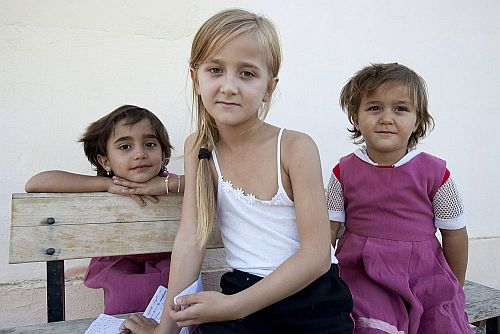 On January 19 2013, fifteen civil society organizations from four Caucasus countries working on the issues of access to education for marginalized and excluded children have founded the Caucasus Network for Children (CNC). The network members from Armenia, Azerbaijan, Georgia and the North Caucasus region of Russian Federation have decided to establish this platform with the aim to influence policies on education and social inclusion affecting life of all children, including those from vulnerable groups of the region. They believe that the network can become an important mobilizing tool for civil society organizations in Caucasus Region which can advance and safeguard the rights of vulnerable children who should be included in education and community life. The network aims to reach this by consolidating and sharing of knowledge, experiences and offering creative solutions to children’s problems at regional, national and grassroots level.
On January 19 2013, fifteen civil society organizations from four Caucasus countries working on the issues of access to education for marginalized and excluded children have founded the Caucasus Network for Children (CNC). The network members from Armenia, Azerbaijan, Georgia and the North Caucasus region of Russian Federation have decided to establish this platform with the aim to influence policies on education and social inclusion affecting life of all children, including those from vulnerable groups of the region. They believe that the network can become an important mobilizing tool for civil society organizations in Caucasus Region which can advance and safeguard the rights of vulnerable children who should be included in education and community life. The network aims to reach this by consolidating and sharing of knowledge, experiences and offering creative solutions to children’s problems at regional, national and grassroots level.
The network members started to work together in the Education Cooperation Across the Caucasus Initiative launched by Open Society Foundations’ in 2008. The initiative brought together the region’s educators to one table to address common concerns, hoping to lay the groundwork for stability in the region. While disagreements and conflicts in the region have led to increasing isolation and lack of contacts across the border, partners in the initiative were in agreement that shared professional work for supporting children`s education could promote the common shaping of a shared future and inspire ideas and solutions for greater stability in the region.
First, the organizations worked on their own projects in 2009-2010, and only exchanged information with each other at joint workshops. Partners started to see value of professional cooperation both for their own work, and for providing better opportunities to vulnerable children in their countries – beneficiaries of their work. As a result of sharing ideas in a region where any exchange is rare, the participant organizations developed small consortium projects, and ESP supported five joint projects comprising two to seven NGOs working on the same issues across the borders in 2011-2012. The Chechen-Armenian consortium, using the expertise of their Azeri partner, has been implementing a project on apprenticeship to help disadvantaged young people acquire livelihood skills by learning crafts hands-on from skilled masters. Another partnership, that of Georgian and Azeri partners, worked on development of accelerated curriculum for dropouts – street children, those from poor families and migrant children – to be able to reintegrate into school. The methodology for running child media clubs to teach children to speak of themselves has been developed by the project conducted jointly by the NGOs form all four Caucasus countries. The cooperation of partners on common projects has resulted in the emergence of a nascent coalition.
Participating civil society organizations (CSOs) and the network not only provide innovative services but also hold governments accountable for implementing their legal commitments to the rights of children. The network plans to be engaged in advocacy and policy work, and through improving capacity of member organizations, aims to become an important actor/stakeholder in the region which works towards better shared future for the region’s children.
Olena Sydorenko
Education Support Program
olena.sydorenko@opensocietyfoundations.org
http://www.opensocietyfoundations.org/reports/education-cooperation-across-caucasus http://www.opensocietyfoundations.org/reports/kids-across-caucasus
Tags: Conflict, Curriculum
